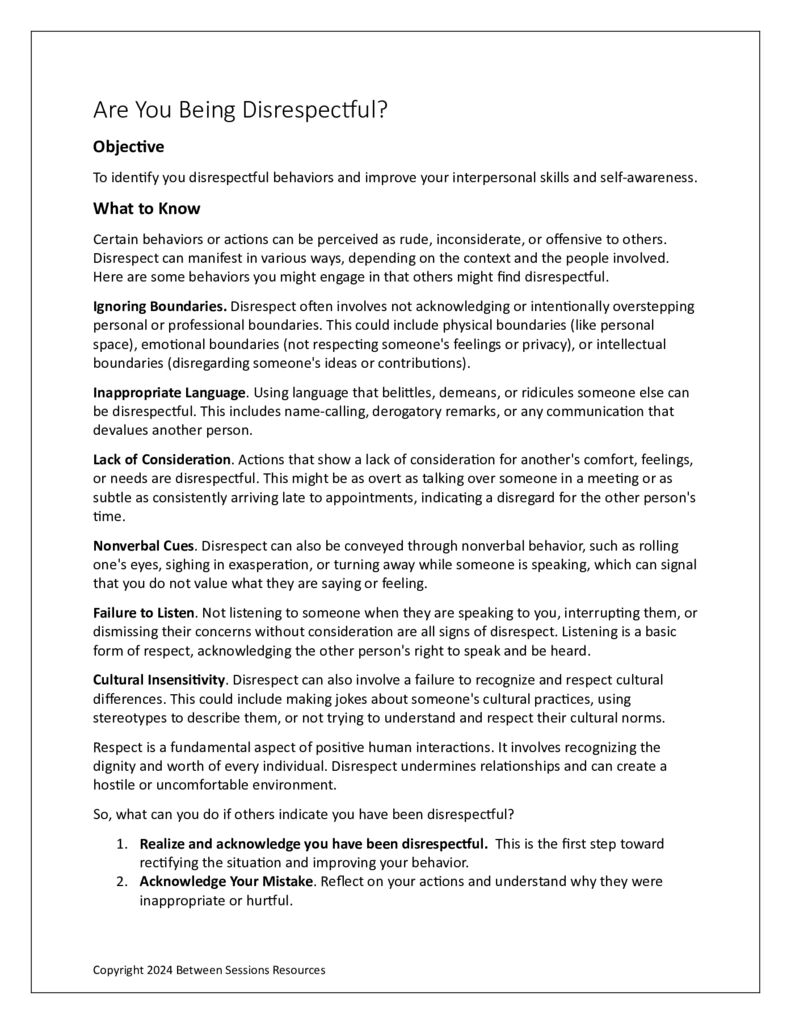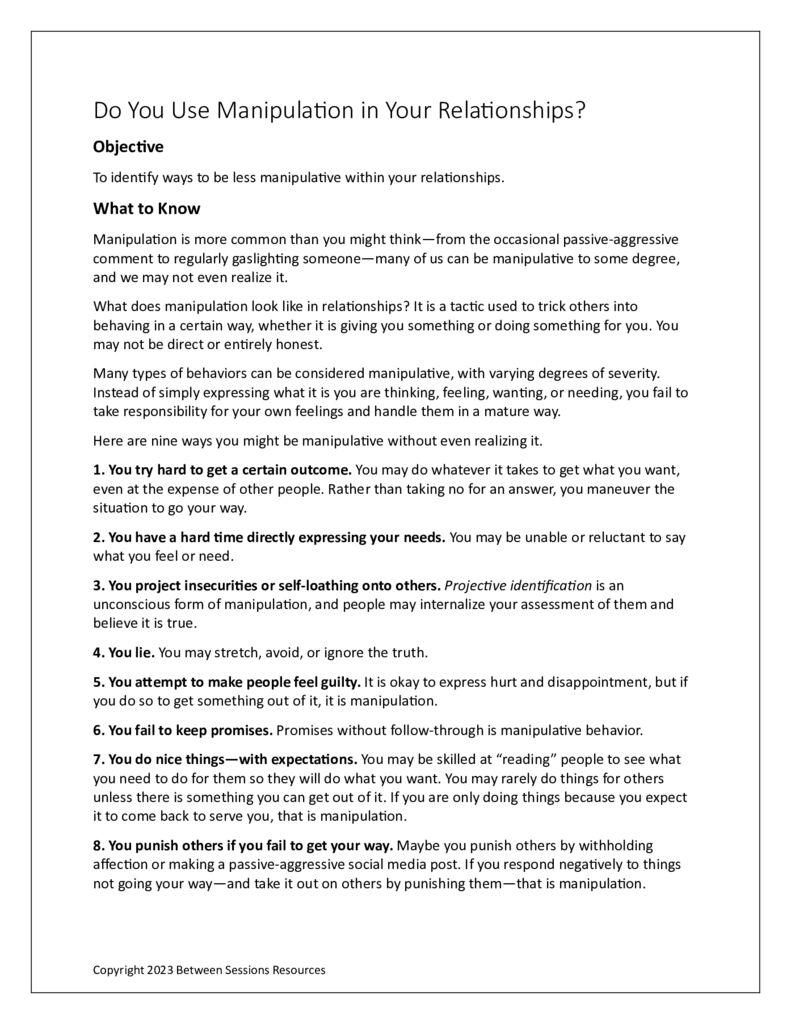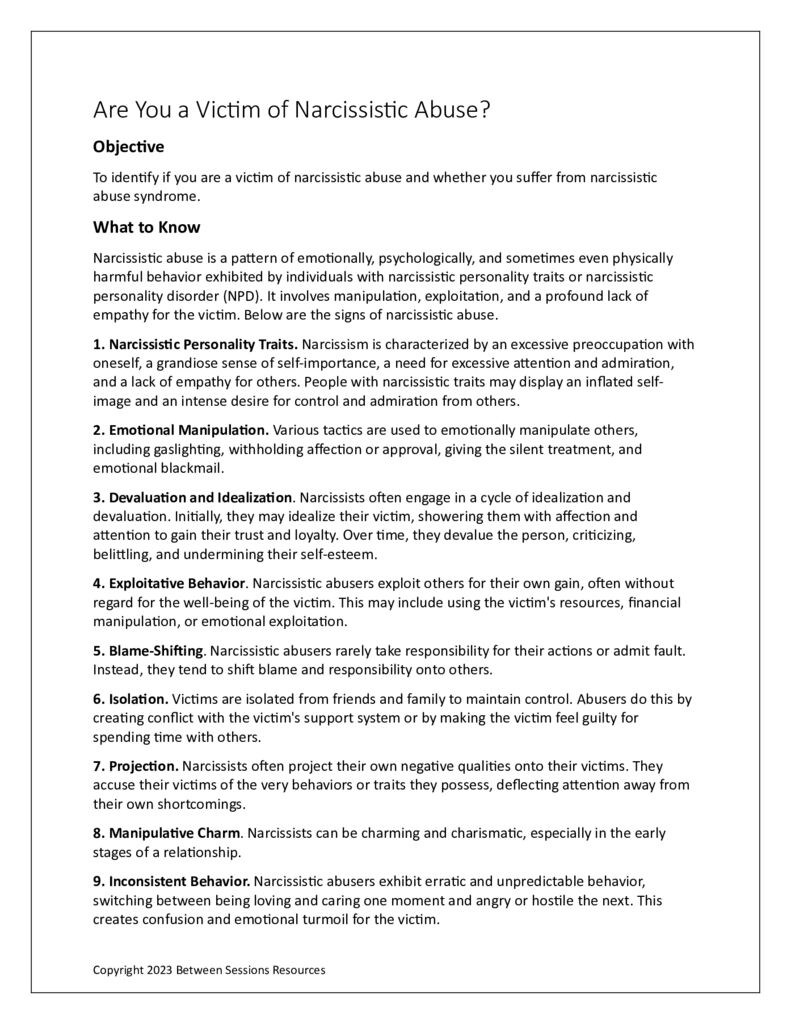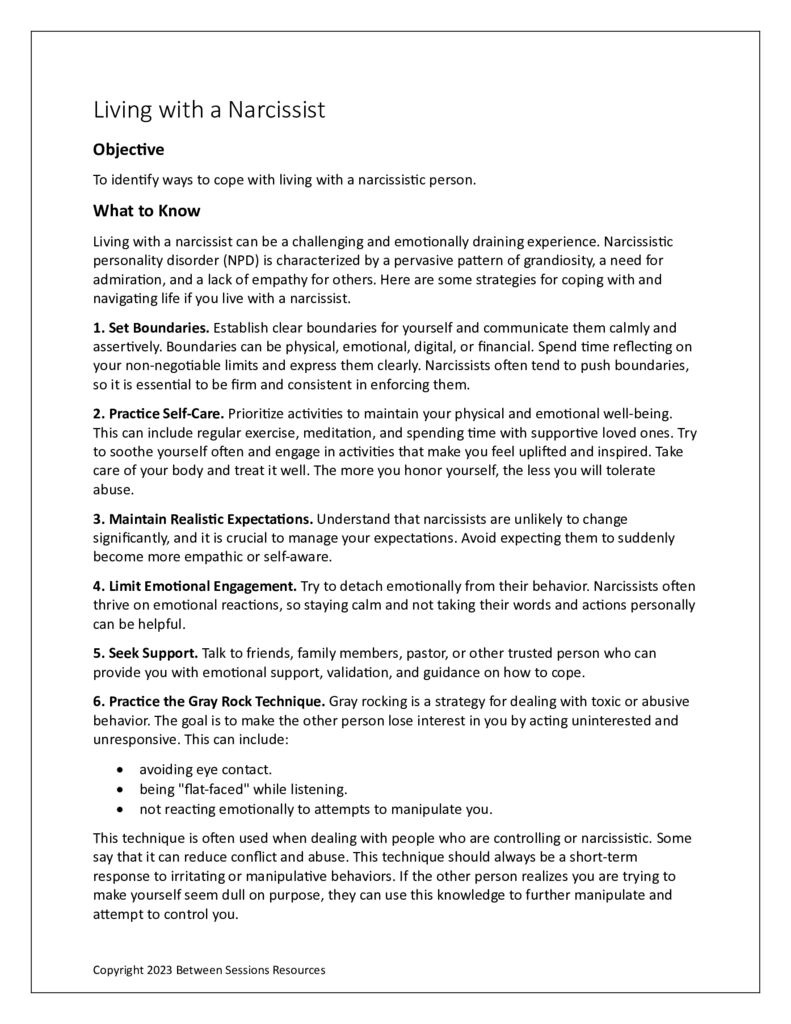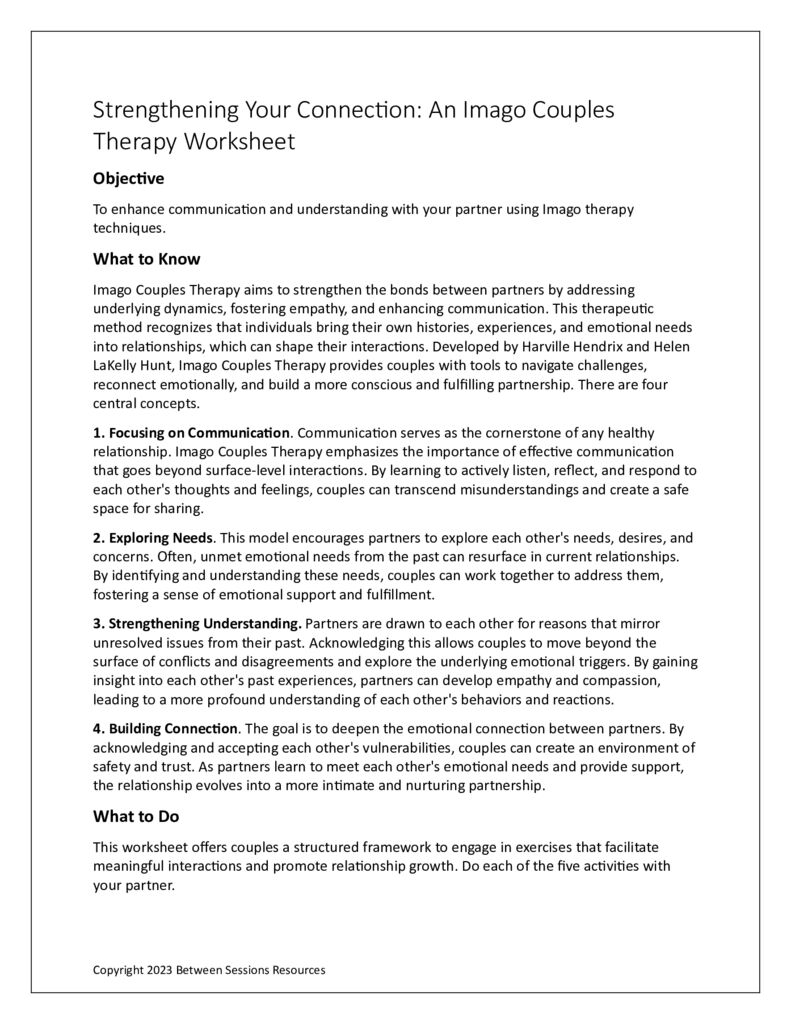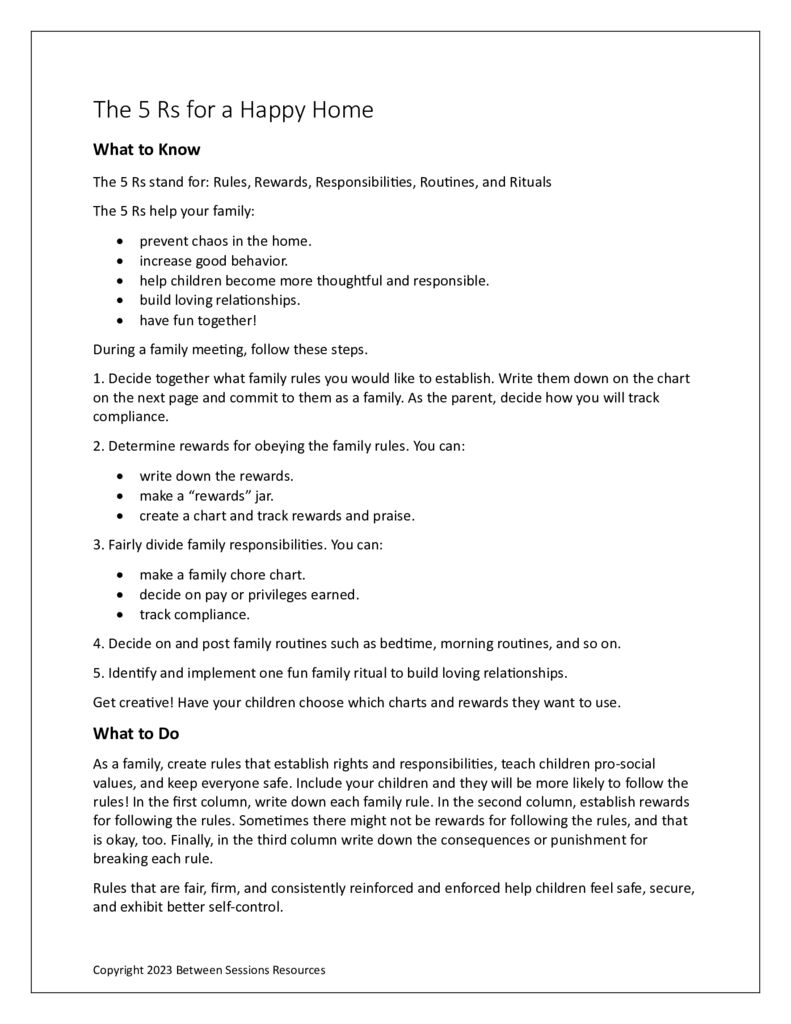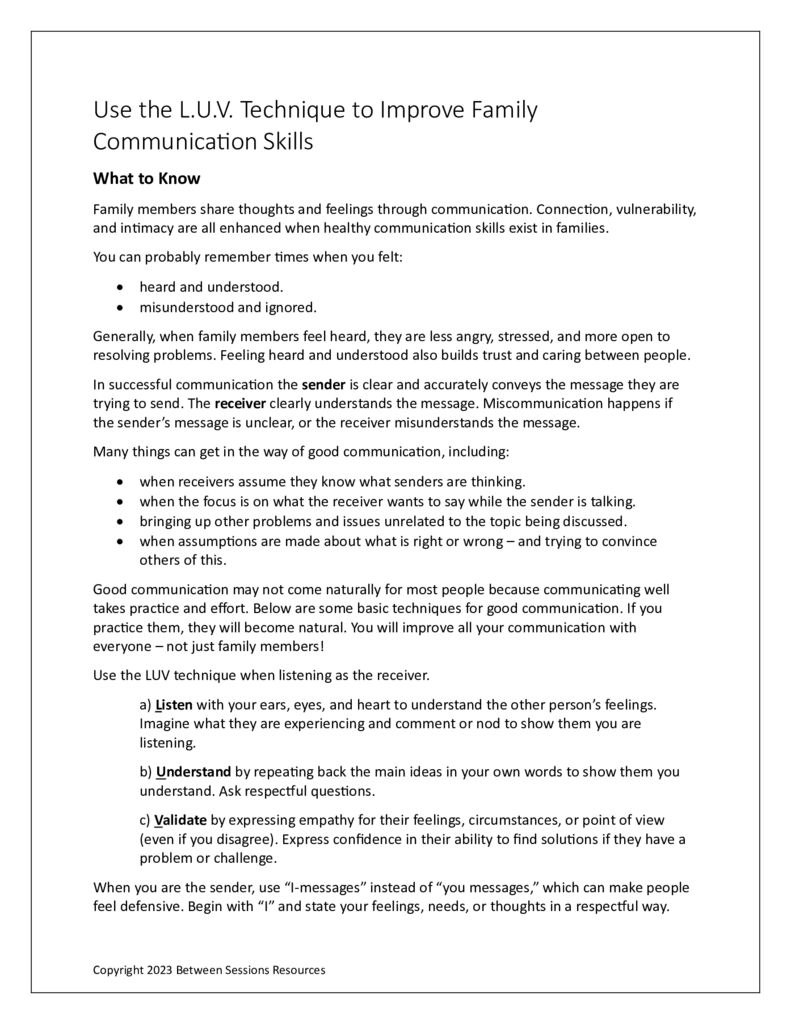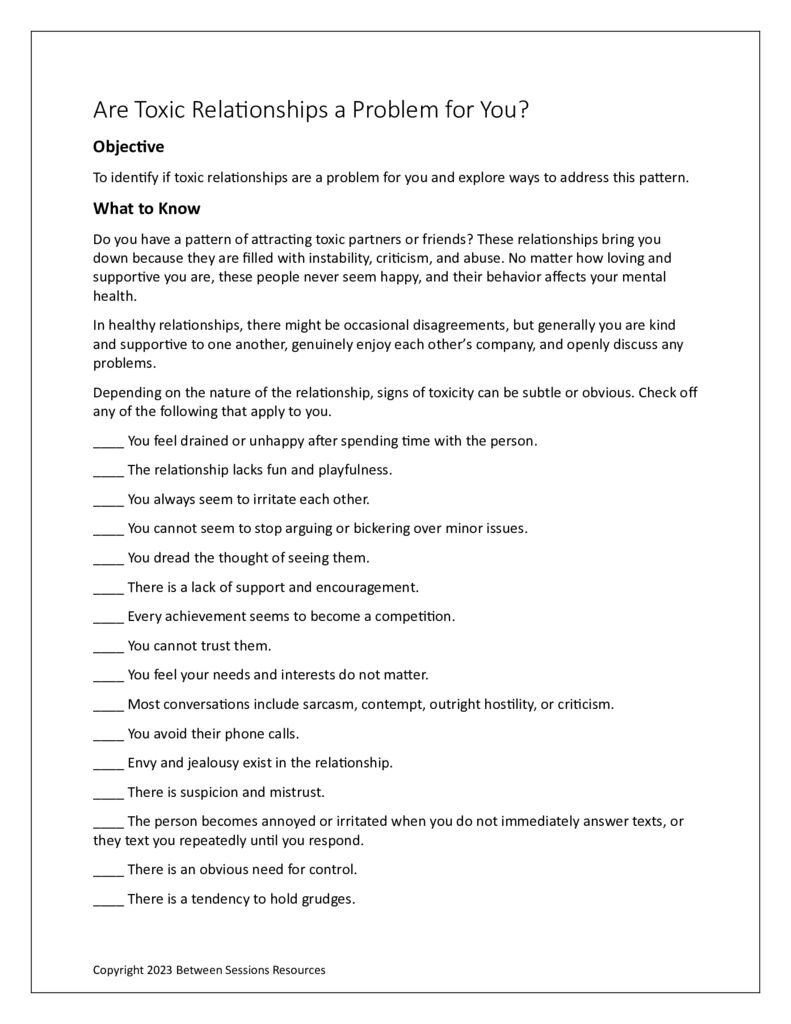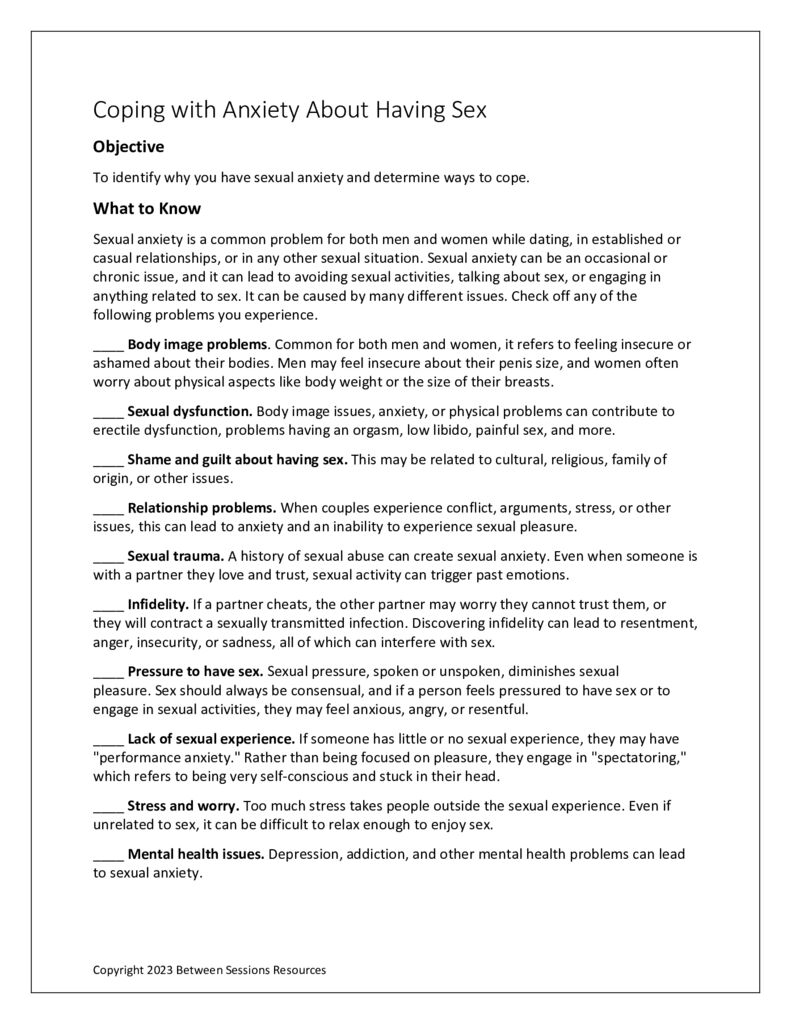This worksheet is designed to help people identify signs of imbalance in their relations and learn new tools to increase harmony. It gives people a list of indicators that their relationship may be imbalanced (i.e. one person always apologizes, one or both people feel unfulfilled) and the worksheet provides thoughtful discussion questions to facilitate understanding. (0724. marriage counseling, relationships, family therapy)
This worksheet is designed to help people identify when their behavior may be seen as disrespectful and improve their interpersonal skills and self-awareness. The worksheet includes eight ways for people to repair relationships when others say they have been disrespectful. Questions guide individuals to understand the reasons why they may have been disrespectful. (0424. social skills, interpersonal effectiveness, DBT, relationships)
Manipulation is a tactic used to trick others into behaving in certain ways. This worksheet details the signs of manipulation and helps people understand how they can create healthier relationships by reducing manipulative behaviors. (1023, narcissism, NPD, manipulation, relationships, BPD, borderline personality disorder, narcissistic personality disorder)
Narcissistic abuse is a pattern of emotionally, psychologically, and sometimes even physically harmful behavior exhibited by individuals with narcissistic personality disorder. This worksheet details the signs of narcissistic abuse and helps people understand the symptoms of Narcissistic Abuse Syndrome. (0923, narcissism)
Living with a narcissist can be a challenging and emotionally draining experience. This worksheet gives people 18 strategies to cope with people who are grandiose, have a need for constant admiration, and lack empathy for others. Questions on the worksheet are designed to help people understand how dealing with a narcissist has affected their well-being. Questions also help people explore their self-care practices, how they set boundaries, how their goals are affected by living with a narcissist, and more. (0923, narcissism, NPD, personality disorders, abuse, boundaries, self-care)
Imago Couples Therapy aims to strengthen the bonds between partners by addressing underlying dynamics, fostering empathy, and enhancing communication. This worksheet reviews the four central concepts of this therapy: focusing on communication, exploring needs, strengthening understanding, and building connection. Exercises include sharing appreciation, reflective listening, and sharing future actions that support each other’s emotional needs. (0823, marriage therapy, couples therapy, family therapy, communication)
This worksheet defines the characteristics of a happy home as Rules, Rewards, Responsibilities, and Rituals. It suggests establishing these at a family meeting and provides a chart for a family to determine the rules as well as the rewards for following them and the consequences for breaking them. (0323, family therapy)
This worksheet was developed to help families develop better communication skills. It describes the LUV technique which teaches family members to Listen, Understand, and Validate. It encourages the use of I-Messages and compliments and discourages negative communication like put-downs and criticism. A chart is provided to keep track of how family members use these tools at a family meeting. (0323, communication, family therapy)
This worksheet is intended to help people determine if toxic relationships are a problem for them and explore ways to address this pattern. A scorable checklist is included to rate the toxicity of the relationship from moderate to severe. Then suggestions are given to help people break a pattern of being in toxic relationships. Readers are asked to think about how people from the past may have set the stage for toxic relationships. (marriage counseling, family therapy, relationships)
This worksheet addresses people who are anxious about having sex. It begins by asking people to think about the causes of their anxiety, which could include body image problems, shame or guilt, pressure to have sex, past trauma, or other issues. The worksheet suggests topics to talk about with a partner and also specific activities to reduce anxiety before sex. (0123, sex therapy, sexuality, sexual dysfunction, anxiety, relationships)


